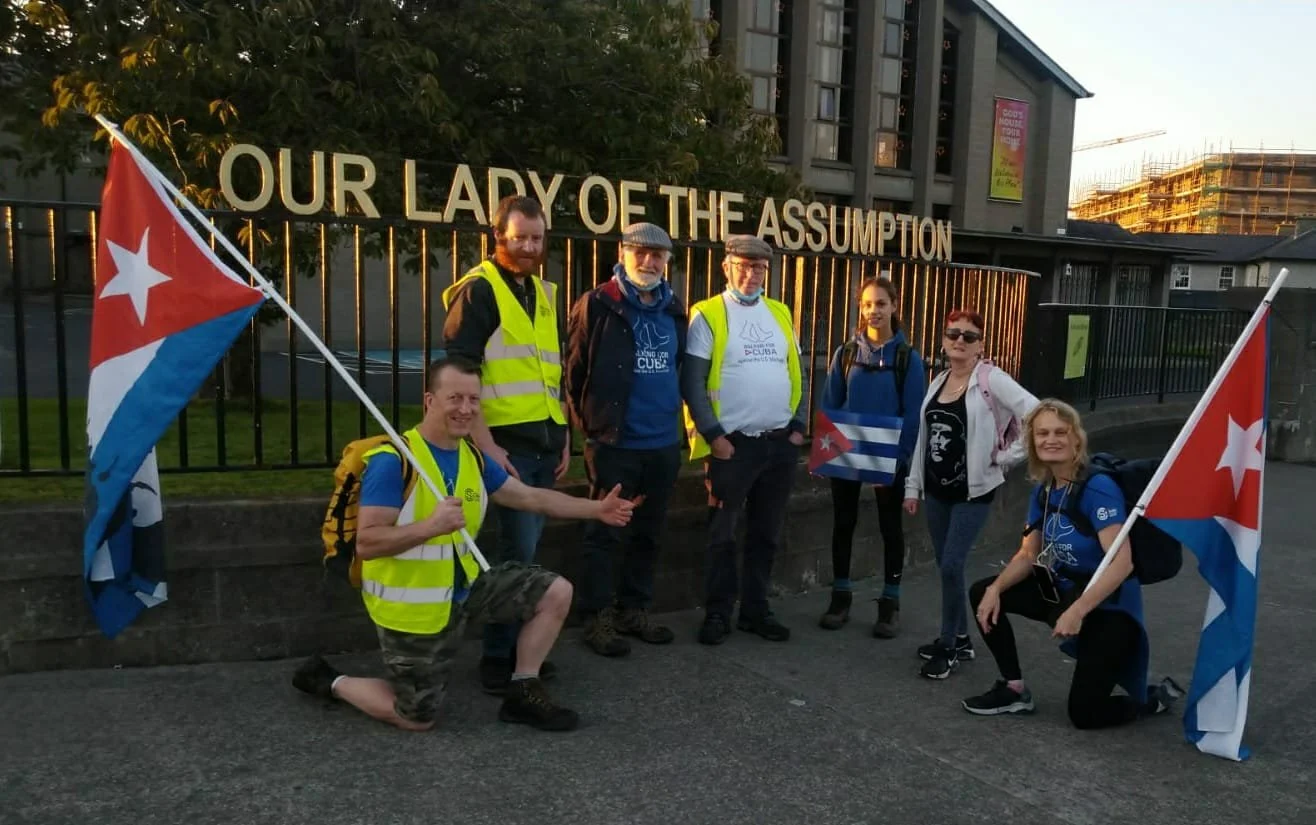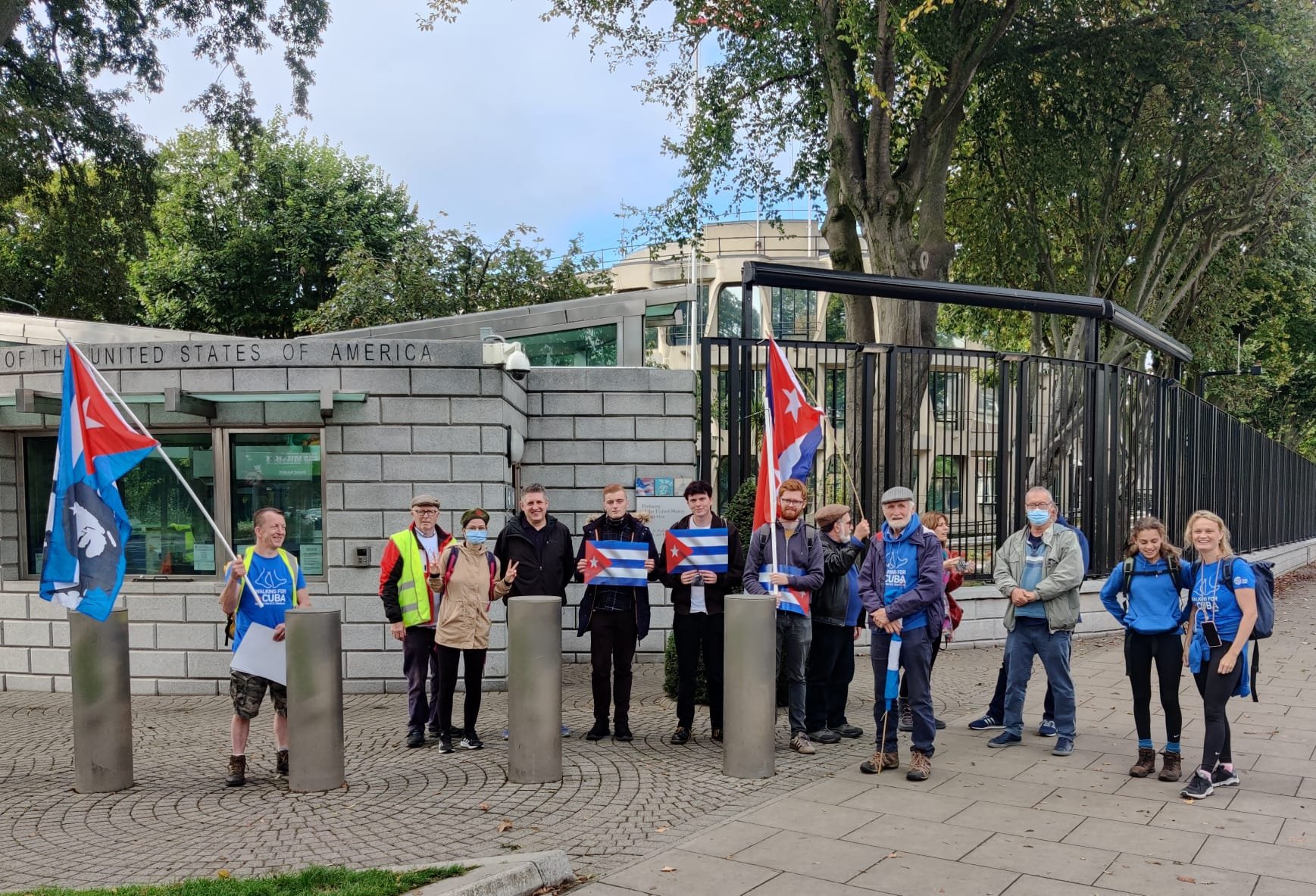Éirígí Activists Join The 'Walk For Cuba' Through Dublin City
Éirígí activists were prominent as speakers and participants in the #WalkingforCuba event last Saturday (October 9th) in Dublin. Organised by Cuba Support Group Ireland, walkers covered a 26km route around Dublin, culminating close to the American ambassador’s residence in the Phoenix Park. Supporters both joined in and cheered along the walkers at various points on the route.
The walk was organised to spread awareness of the impacts of the US blockade of Cuba and to fundraise for medical supplies for the Caribbean island. The blockade of socialist Cuba has been ongoing since 1960 and prevents the Cuban people from accessing, amongst other things, medicines and modern equipment for their renowned universal health care system.
At the American embassy in Ballsbridge, Cathaoirleach Éirígí, Brian Leeson spoke about the impact of colonialism on both Cuba and Ireland, two small islands with powerful neighbours who have repeatedly tried to prevent their self-determination and independence.
While the US claims to be concerned about democracy in Cuba, this is complete hypocrisy given their decades of political, economic and military support for tyrannical regimes across the globe - support that continues for regimes like Saudi Arabia today.
The US opposes the Cuban revolution, not because it is ‘undemocratic’, but because it is an example of people taking matters into their own hands and pursuing a different approach to the capitalist US. That is the real reason for the blockade.
Despite this extreme external pressure, the Cuban Revolution has provided aid and medical assistance to many other countries, in the spirit of internationalism and solidarity that their revolution is based upon. Such dangerous ideas must not be allowed to flourish by the powerful, for fear they might spread!
#WalkingForCuba outside the United States Embassy, Dublin
Further along the walk, from outside Constance Markiewicz’s former house in Rathmines, Éirígí’s Tallaght representative, Kerron O’Luain, gave an overview of the similarities between revolutionary movements in Cuba and Ireland.
He likened the failed attack by Castro’s force on the Moncada barracks in 1953 to our Easter Rising of 1916, leading as it did to the eventual defeat of the Batista dictatorship in 1959. Similar to Robert Emmett, Castro used his trial following the Moncada attack to highlight injustices and publicise the revolutionary cause.
While the 1959 Cuban revolution led to the creation of a socialist state, the revolutionary potential of the post-1916 period in Ireland was suppressed by partition and powerful counter-revolutionary forces including the churches, big farmers and indigenous capitalists.
International solidarity is vital in preserving any revolutionary gains in the face of powerful opposition and #WalkingForCuba is a vital part of this effort. Éirígí commend the walkers and organisers who are to be applauded for their efforts.


